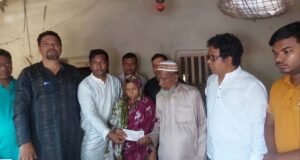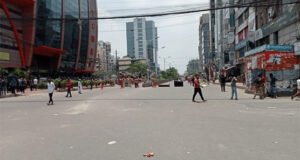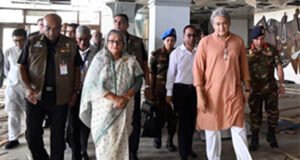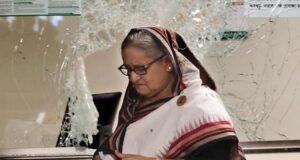
Prime Minister Sheikh Hasina on Monday urged the United Nations to help Bangladesh in relocating Rohingyas to Bhashanchar island.
She made the plea while UN resident coordinator Gwyn Lewis called on her at her official residence, Ganabhaban, UNB reports.
PM’s Speech Writer M Nazrul Islam told reporters that the prime minister mentioned that over one million Myanmar nationals, Rohingyas, are now a big burden for Bangladesh.
“Their return to their homeland soon is uncertain, so I am requesting the UN to help Bangladesh relocate the Rohingyas to Bhashanchar,” she said.
In this connection, she mentioned that the island has been organised and developed to provide better living condition for the Myanmar nationals.
She said that it has a cyclone shelter, employment opportunities on limited scale and education facilities for the children in their mother language.
Hasina said that the Rohingyas who are living in camps in Ukhia, Cox’s Bazar have already outnumbered the local people.
“They have created problems for the living and livelihoods of the local Bangladesh people,” she said.
She also said that some of the Rohingyas are involved in various types of anti-social activities like human and drug trafficking, internal conflicts and militant activities.
“In this situation, as their scope to return to their homeland soon is uncertain, their living standard will be upgraded if they relocate on Bhashanchar island where they will get better environment to live,” she said.
The PM said that forcibly displaced Rohingyas are living in an inhumane condition in Cox’s bazar amid uncertainty about their repatriation soon.
Bangladesh has so far moved about 30,000 Rohingyas to Bhasanchar to ease crowding in the camps in Cox’s Bazar.
The Rohingyas, the minority Muslims in Myanmar, fled to neighbouring Bangladesh mostly in 2017 to escape killings, arson and rape unleashed by the country’s military junta.
Diplomatic efforts at safe, voluntary and sustainable repatriation of the Rohingyas to their homeland have so far failed.
The issues of UN-set MDGs and SDGs were also discussed during the meeting.
PM Hasina said that she herself attended the events during the adoption of the agenda of MDGs and SDGs where Bangladesh played a proper role.
She said that necessary measures have been taken to implement SDGs and issues relating to Bangladesh have been incorporated in the country’s five-year and perspective plans.
Pointing out a number of challenges in implementing the SDGs due to Ukraine-Russia war followed by sanctions and counter-sanctions, the prime minister said that the war after the Covid-19 pandemic situation has created some obstacles.
But the government has been working to implement the SDGs, she said.
She said the government has been continuing with the provision of free books, stipends and scholarships to students for promotion of education. School feeding programmers have also been introduced.
Talking about women empowerment, she said that the present government has ensured female representatives on the local government bodies.
Besides, job opportunities have also been created for the female to attract them to education, she said.
She said that as a result now the parents are more interested to send their daughters to educational institutions.
In this regard, the PM said that girls are now outnumbering the boys in schools, while almost cent percent enrolment has been achieved in the country.
During the meeting, the UN resident coordinator highly appreciated Bangladesh’s stunning progress and achievements in socio-economic front as well as in women’s empowerment, girl’s education, and in achieving MDGs and SDGs, spokesperson Nazrul said.
Gwyn Lewis assured that the UN will remain beside Bangladesh in the days ahead in overcoming various challenges like it had been in the past.
About child labor situation in the country Hasina said there is no such case in formal sectors as it has been almost abolished although there might be some in informal areas.
Referring to the climate change, the prime minister said that her government has undertaken adaptation and mitigation programmers to face its adverse impact and has constructed cyclone tolerant houses as well as created green belts along the coastal areas.
About measures to fight climate change the PM said they have taken adaptation and mitigation programme for making Bangladesh climate change resistant.
She said Bangladesh is building climate resistant houses and green belt along the coastal areas as measures to fight the climate change impacts.
She said Bangladesh set up a Climate Trust Fund with its own finance.
She however expressed dissatisfaction over the climate promises made by the rich nations.
“The rich countries are giving promises, but they are not complying with those,” she said.
 Weekly Bangla Mirror | Bangla Mirror, Bangladeshi news in UK, bangla mirror news
Weekly Bangla Mirror | Bangla Mirror, Bangladeshi news in UK, bangla mirror news







